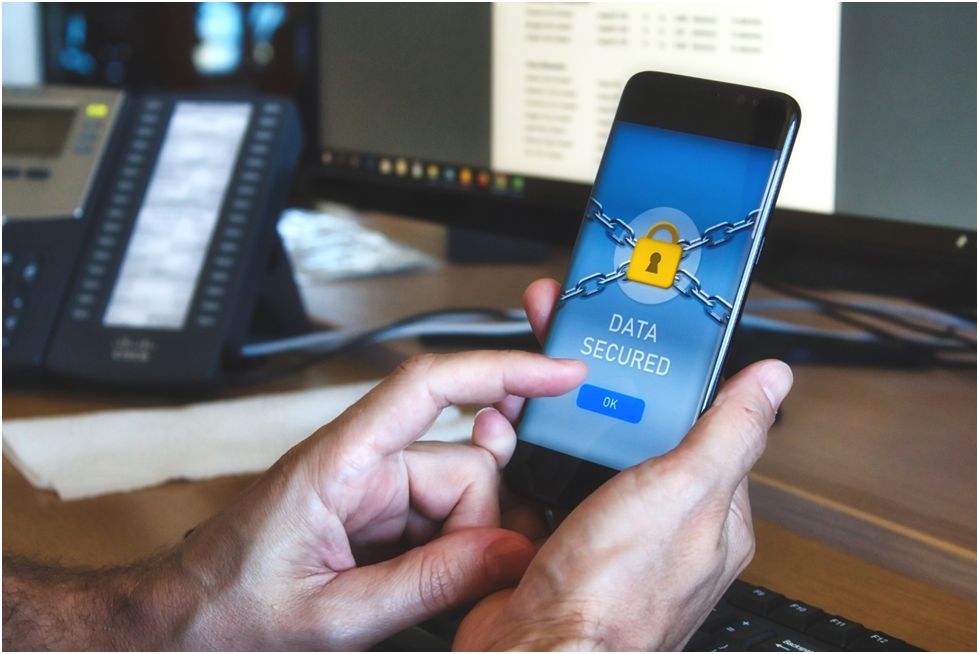
Data protection and security are two closely related things. However, they are not the same, and many people confuse these two. Still, they can be looked at as a whole since they are meant to protect your business from various factors, both internal and external.
Before we start talking about why you need to implement both of these, let’s first explain the differences between the two. You don’t want to mix them up, especially now when it’s essential to protect and secure your business in the digital world.
Table of Contents
The Difference Between Data Protection and Data Security
Data protection involves practices, mechanisms, and tools used to create data copies. Furthermore, it ensures that your data can be restored in case of a data breach, corruption, or stolen data. On the other hand, data security involves various practices and mechanisms that protect your data from illegal access or distribution.
Data security is simply the first line of defense. It involves various security layers that keep unauthorized personnel from corrupting or stealing your data. If this happens, data protection helps you recover data copies and ensure you can continue running your business.
Both of these are important in modern business as companies rely more and more on data to improve their operations. Companies utilize data entry services, data scraping, big data analysis, and other data-related analysis to enhance decision-making, analyze processes, and come up with new business ideas.
Now, let’s see why these two are so essential to stay competitive.
They Help Businesses Remain Trustworthy
When a customer’s data is used poorly by businesses or breached by a third-party, they lose trust in that business. A simple example is Facebook after the scandal with personal data use. This is just a social network we are talking about, and it was a major scandal that caused outrage.
In the business to business market, companies share sensitive business information between themselves. And, if some data is lost due to the other party’s negligence, chances are they will terminate their partnership.
Furthermore, if everyone knows someone has breached your data, new customers will be reluctant to deal with your business. Overall, a data breach can damage your reputation leading to severe losses.

They Help You Ensure GDPR Compliance
This is one of the most important reasons why you should work on protecting and securing data. All businesses that operate within the EU or work with customers from Europe need to be compliant with the General Data Protection Regulation.
This regulation is mandatory, and companies that don’t comply can expect huge fines from the European Union. Without it, you can’t operate in the EU or sell products and services to customers based on the continent.
Apart from huge fines, legal issues, you can also lose a lot of business. Customers know that companies use their personal data online, and they avoid businesses that aren’t GDPR compliant. Privacy has become an important thing, and consumers want to know how their data is used. They also want the option to deny giving data if they’re going to.
Preventing Breaches Hurtful to Businesses
One of the essential principles of both data protection and data security involves various security measures for protecting personal data. When implemented, these measures will lead to a reduced number of privacy breaches and security issues.
The fewer security breaches a business is subjected to, the fewer customers it will lose. This also means increased trust and more profits. A single breach doesn’t only damage your company at that moment, but it can have prolonged effects in the form of lawsuits, penalties, and new security investments.
Without data security, someone can breach and delete essential documents, project information, steal financial information, and much more. This could set the whole organization back for many months. On the other hand, if there is no data protection, there will be no way to get all of the data back, which could have devastating effects.

Preventing Breaches Hurtful to Customers or Employees
Various privacy protection practices are designed to secure personal data. At the same time, they can help with all actions related to sharing, disposing of, processing, storing, and collecting data. In modern business, data is handled through many devices and channels for various uses.
With proper security controls, it’s possible to reduce breaches to a minimum. Companies have a lot of employee and customer data. If breached, online criminals can use it to hurt them financially and in many other ways. This could lead to an unstable environment in your company, with employees fearing for their safety.
On the other hand, customers that are put in danger by companies lose their trust entirely. Both customers and employees could potentially pursue legal charges that can cost businesses a considerable amount of money.
Give Customers What They Want
No matter what industry you are in, it’s all about the customer. People are now aware of data privacy and security more than ever. This is especially true for younger people and upcoming generations. They were growing up with the internet, and they know just how important online security is.
They understand that websites and companies collect, share, analyze, and use their data. Furthermore, they know their rights related to personal data. This is why they are more willing to buy products or services from companies that have proper data protection and data security practices.
This has become equally as important as customer services, product quality, and prices. Consumers want to know that their relationship with a business won’t involve data misuse or security breaches. This is an essential factor that affects buying decisions.
Summary
Privacy and security have both become a major pain point for customers. So, this is another way of scoring points with customers and partners.
With quality data protection and data security practices, you can attract more customers and retain them for an extended period. Not only will you make your business more profitable, but you will also gain a competitive edge.
Carla Miranda is the Business Development Manager of Data Entry Outsourced and has a great experience of 10 Years and Provide the best outsourcing service to the clients across the world. She is confident in her work and assures the safety of data and grantee to keep it confidential, by utilizing proper protocols with the use of updated technology. The main goal is to provide Client Satisfaction and helps to evolve through the improvement of Data Entry Management